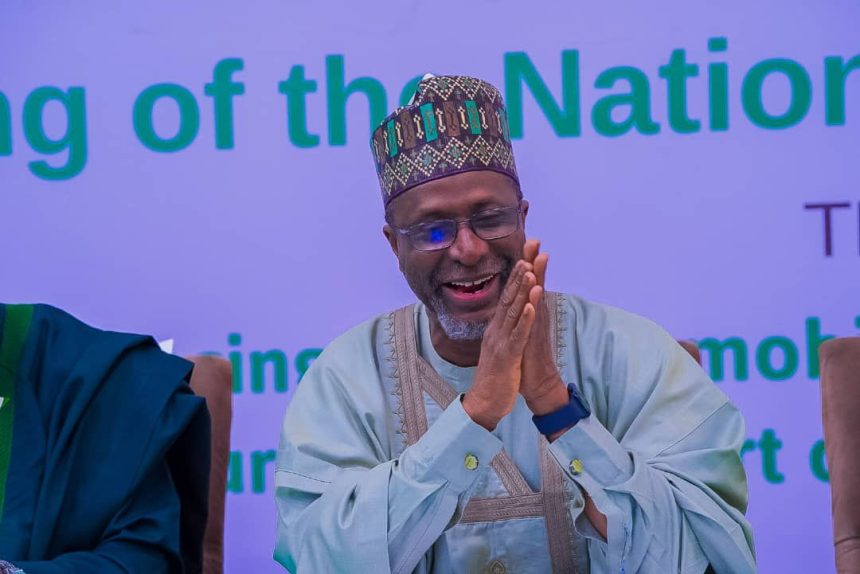By Chidiebere Ugwu
The Federal Government on Wednesday emphasized the need for Nigeria to redouble efforts to mitigate greenhouse emissions and embrace renewable energy solutions.
The Minister Of Environment, Balarabe Abbas Lawal, gave the charge at the 17th Meeting of the National Council On Environment which held At NAF Conference Centre, Abuja, with the theme: “Environment Financing: Need to mobilize more financial inflows for generating adequate resources in support of environmental sustainability efforts”.
He also noted that the environment financing is capital intensive, stressing that there is the need to implore innovative financing mechanisms, such as Green Bonds, Carbon Pricing, and Public Private Partnerships to mobilize more financial inflow for environmental sustainability.
According to the Minister, this will help in generating the resources needed for effective environmental protection and conservation efforts, urging members of the Council to intensify exploration and implementation of financing mechanisms at their disposal.
Lawal emphasized that Nigeria stands at a critical juncture, where the urgency to act boldly on environmental issues is undeniable.
“Each decision we make within these walls reverberates far beyond shaping the health and sustainability of our planet for generations to.come.
“Our nation stands at a critical juncture, where the urgency to act boldly on environmental issues is undeniable. Climate change threatens ecosystems, livelihoods, and biodiversity, swift and decisive actions are needed to mitigate the adverse effects of climate change.
“We must redouble our efforts to mitigate greenhouse gas emissions, embrace renewable energy solutions, and foster sustainable practices across all sectors. As guardians of biodiversity, we must safeguard our precious ecosystems from degradation and exploitation. Protecting our forests, wetlands, and marine habitats is not merely an environmental imperative but a moral obligation to preserve the rich tapestry of life on Earth.
“To ensure investment on environmental protection is not wasted, environmental justice must be enforced and the benefits of conservation and sustainable development must be protected and equitably distributed among all segments of society. Environmental degradation disproportionately impacts marginalized communities, exacerbating inequalities and perpetuating social injustices.
“We must strive for inclusive policies that empower all individuals to participate and benefit from environmental decision-making processes. Innovation and collaboration will be our greatest allies in confronting these challenges.
“By harnessing the power of technology, fostering partnerships across sectors, and engaging with diverse stakeholders, we can forge a path towards a more resilient and sustainable future” he said.












